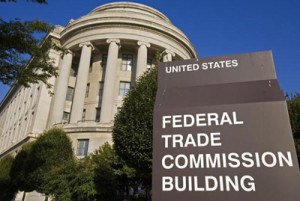Thoughts on forensic audits and what they can (or can’t do) for you
Lately I’ve been fielding calls from individuals that have obtained what are called “forensic audits” of their mortgage documents. Usually, this is in conjunction with a difficult scenario that they have found themselves in, where they are behind on their payments and are looking for any ammunition to defend against a foreclosure. In theory, a forensic audit is straightforward: a company will comb through your mortgage documents for “violations” or other signs of misconduct by the lending institutions. This is usually not too difficult a task given that many of the regulations that control these transactions are extremely technical. Violating them is easy, in other words.
The bigger issue is what to do with the violations when they are discovered. There has not been a tremendous amount of precedent in this regard (at least in Washington, there hasn’t been), but I would advise against the notion that faulty mortgage documents equal borrower keeping home. That is not likely to happen for a few reasons — first, the bank did loan money out to the individual, which technically, would need to return the funds if the transaction were undone and reset; second, the parties relied and acted upon the loan. A court could reset the entire mortgage and order that, if possible, the parties be put back to their proverbial starting points. This obviously present a problem in and of itself, given that the home may be underwater and the borrower may not have the funds to refund the bank for the money issued in the original loan.
So, in short, for those of you leaning on a forensic audit as the resolution to your mortgage predicament, I’d make sure to have a backup plan.


 On November 19, 2010, the Federal Trade Commission (FTC) issued 16 C.F.R. Part 322, the Mortgage Assistance Relief Services Rule (MARS) concerning providers of mortgage relief service. While many relief providers are legitimate, “At a time when many Americans are struggling to pay their mortgages, peddlers of so-called mortgage relief services have taken hundreds of millions of dollars from hundreds of thousands of homeowners without ever delivering results,” FTC Chairman Jon Leibowitz said. Unlike an attorney assisting a client in a loan modification or short sale effort, many mortgage relief services do not have a good understanding of the consistently changing rules and laws (both state and federal) involving mortgages and foreclosures and are not subject to code of ethics.
On November 19, 2010, the Federal Trade Commission (FTC) issued 16 C.F.R. Part 322, the Mortgage Assistance Relief Services Rule (MARS) concerning providers of mortgage relief service. While many relief providers are legitimate, “At a time when many Americans are struggling to pay their mortgages, peddlers of so-called mortgage relief services have taken hundreds of millions of dollars from hundreds of thousands of homeowners without ever delivering results,” FTC Chairman Jon Leibowitz said. Unlike an attorney assisting a client in a loan modification or short sale effort, many mortgage relief services do not have a good understanding of the consistently changing rules and laws (both state and federal) involving mortgages and foreclosures and are not subject to code of ethics. According to
According to